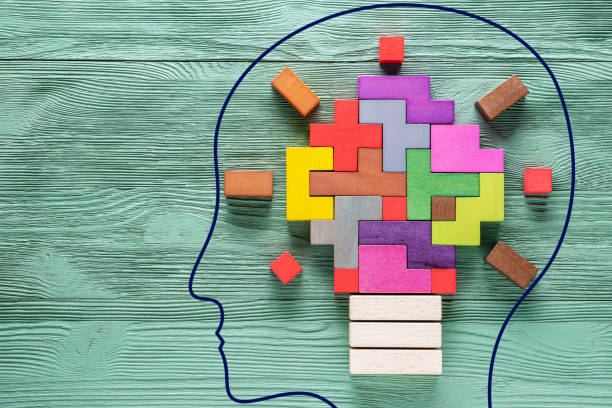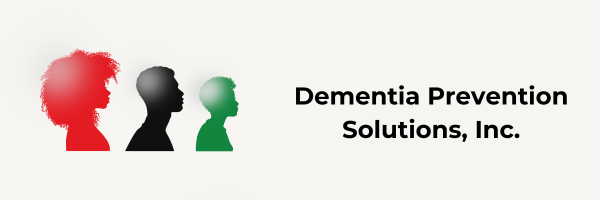Dementia affects millions of people worldwide, robbing them of memories and impacting their daily lives. But research shows us that there's a powerful tool readily available to help prevent it – mental stimulation. Studies have found that keeping your brain active throughout your life can:
- Maintain Cognitive Function: Regularly challenging your brain helps maintain memory, focus, attention span, and problem-solving skills. It's like giving your brain a workout, keeping it sharp and functioning optimally.
- Build Cognitive Resilience: Just like physical exercise strengthens your body, mental stimulation strengthens the connections between brain cells. This builds resilience, making your brain more resistant to age-related decline and the potential onset of dementia.
- Promote Lifelong Learning: Engaging in stimulating activities keeps your brain adaptable and receptive to new information. This encourages lifelong learning, a key factor in maintaining cognitive health as we age.
By incorporating simple brain-boosting activities into your daily routine, you can take proactive steps towards a sharper mind and a healthier future. Let's explore some fun and effective ways to keep your brain active and reduce your risk of dementia!
- Challenge Yourself: Learn a new skill, like playing a musical instrument, a new language, or even coding.
- Puzzle Power: Work on crossword puzzles, Sudoku, or other brain teasers. These activities can improve your memory, focus, and problem-solving skills.
- Read & Reflect: Dive into a good book, explore new genres, or join a book club to discuss what you've read. Reading stimulates your brain and keeps it engaged.
- Become a Brainiac!: Try brain training apps and online games designed to challenge your memory, focus, and thinking skills.
- Socialize & Learn: Connect with friends and family, engage in stimulating conversations, and share new information with each other. Social interaction is a great way to keep your mind active and engaged.

Make it a Habit: Daily Brain Fitness
Just like physical exercise, the key to reaping the benefits of mental stimulation is consistency. Here are some tips to make brain-healthy activities a regular part of your routine:
- Start Small: Begin with short, focused activities and gradually increase the duration and difficulty as you get comfortable.
- Find What You Enjoy: Choose activities you find fun and engaging. This will make it easier to stick with them in the long run.
- Learn Something New Every Day: Challenge yourself by learning something new, even if it's just a small fact or a new word each day.
Remember, it's never too late to start! By incorporating these simple activities into your daily routine, you can keep your mind active, engaged, and sharp for years to come.
Bonus Tip: Combine physical activity with mental stimulation for an extra brain boost! Try learning a new dance routine, taking a nature walk while listening to an educational podcast, or playing a game of chess with a friend.
Resources
Here are some reputable sources and tools to help you get started on your mental fitness journey:
Articles:
- National Institute on Aging: https://www.nia.nih.gov/health/alzheimers-and-dementia - Provides information on brain health, dementia risk factors, and strategies for cognitive health.
- Alzheimer's Association: alz.org - Offers articles on brain health, memory loss, and tips for reducing dementia risk.
- Harvard Health Publishing: https://www.health.harvard.edu/alzheimers-disease/what-can-you-do-to-avoid-alzheimers-disease - Explores lifestyle changes that may help reduce dementia risk.
Books:
- "Keep Your Brain Alive" by Lawrence Katz and Manning Fein: Provides a variety of brain training exercises and activities to improve memory, focus, and cognitive function.
- "The Memory Jogger" by Paul Sloane: Offers practical strategies and exercises to improve memory and cognitive skills.
- "Spark: The Revolutionary New Science of Exercise and the Brain" by John Ratey: Discusses the connection between physical exercise and brain health, and how it can improve cognitive function.
Podcasts:
-
- "The BrainCraft Podcast" by Angela Duckworth: Features interviews with experts on brain health, learning, and productivity.
- "Mindfulness Meditation Podcast" by Sharon Salzberg: Offers guided meditations and practices to improve focus, reduce stress, and enhance cognitive function.
- "Alzheimer's Association Podcast Series" by Alzheimer's Association: Provides information on dementia research, caregiving tips, and strategies for promoting brain health.
No content on this site should ever be used as a substitute for direct medical advice from your doctor or other qualified clinician.

